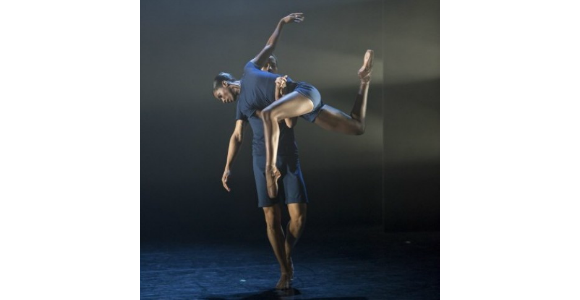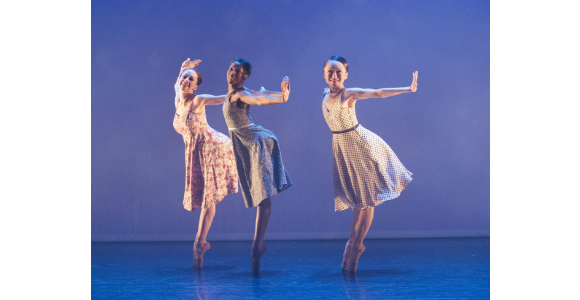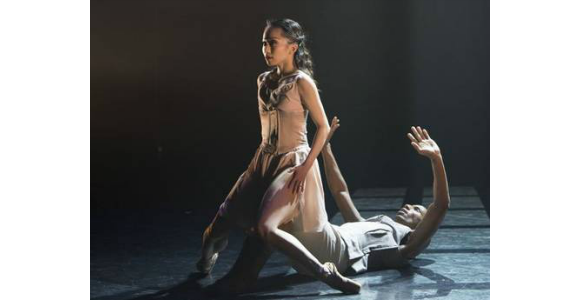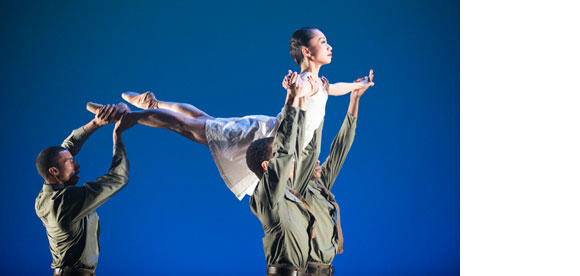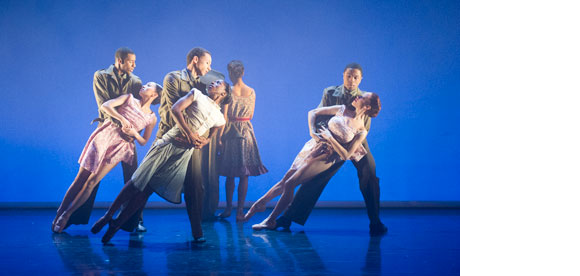IN TWELVE short years, Ballet Black has made quite a name for itself, winning prestigious awards and forging an enviable link with the Royal Opera House. What it hasn’t done however, is visit Scotland – until now.
2013
Ballet Black is the black diamond in the crown of modern ballet and once again has pushed the boundaries. Catch them touring if you can.
Sitting within sweat sniffing distance, I still couldn’t consider these dancers as human beings not too unlike myself. Their lean lengthy limbs, sheathed in firm hairless, healthy flesh, musculature prominent. A faint outline of occasionally provoked nipples being one of the only features reminding you that these dancers have real bodily functions and juices.
A whistle-stop trip to Russia immediately after this show has allowed the rare luxury of the overall scope and flavour of an ambitious quadruple bill of new work to simmer in my consciousness before writing this review. To begin with let’s consider the rarity of that brief statement – a “quadruple bill of new work”: We may not experience such a programme that often
The opening half of the show is fun-time for the dancers, a trio of short works giving them a chance to shine. Ludovic Ondiviela’s frothy love duet Dopamine (You Make My Levels Go Silly) is the pick, a hyperactive fizz of first love, but Robert Binet’s Egal and The One Played Twice by Javier de Frutos aren’t far behind, the pure joy of dance spilling out from every step.
Ballet Black, the award-winning company founded to provide role models for black and Asian ballet dancers, is now 12 years old. It has established its own identity, which is as much about new work as it is about the colour of the dancers’ skin. It’s a small, sparky company with plenty of ambition and swagger.
The award-winning company of black and Asian dancers founded by Cassa Pancho in 2001 comes storming back onto the Linbury stage with a toothsome quartet of works. A brace of duets, an amuse-yeux from dance jester Javier de Frutos and a full-blooded narrative contribute to an immensely varied and satisfying programme.
There should be no need for a company called Ballet Black, just as there should be no need for all-female political party shortlists. But there is, and for two reasons: to offer a platform for classically trained dancers of colour, particularly women, conspicuously absent from Britain’s big ballet companies; and to provide role models for a rising generation of talented kids. But in the 12 years of Ballet Black’s existence, it has found itself a third raison d’être. It’s hard to think of another small company that even comes close to its turnover of new work.
Perhaps the most impressive of Pancho’s achievements is that over the years she has commissioned more than 30 danceworks.
Ballet Black may struggle against an inexplicable lack of state funding, yet it continues to make a heroic investment in new choreography. This season its adventurous policies pay dividends with Javier de Frutos’s new piece, The One Played Twice.

